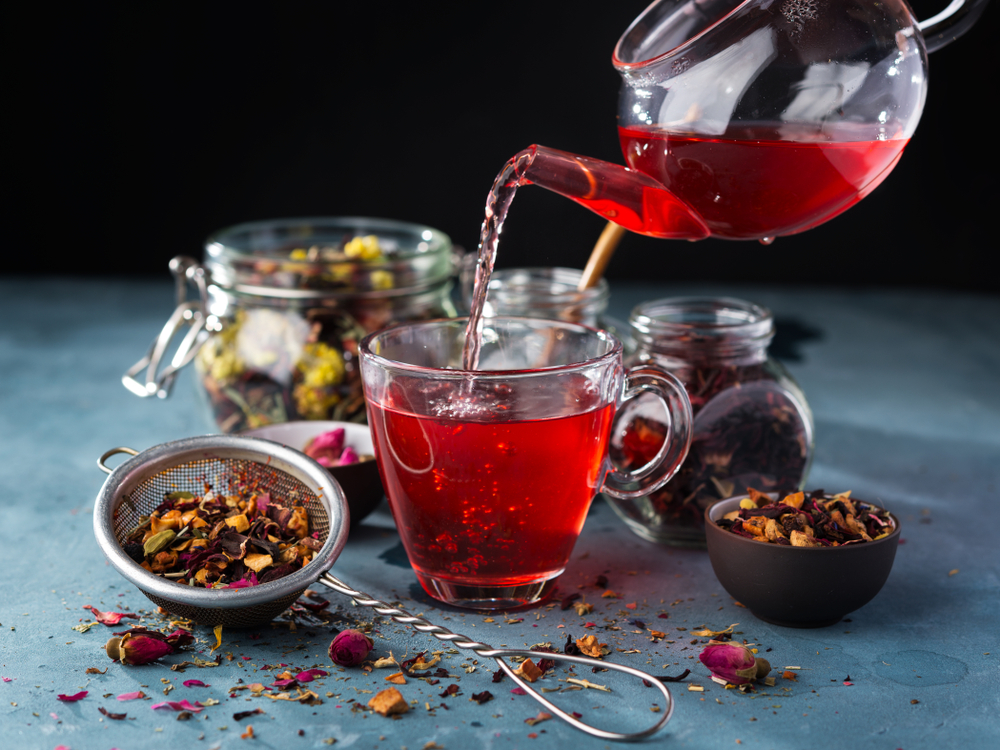How Innocent Are Winter Teas?

Recently, "winter tea" mixtures of herbal teas have seen a surge in demand. However, Farmacognosy Expert Associate Professor Dr. Etil Güzelmeriç warns against the indiscriminate consumption of these teas, advising, "Don't compromise your health in the pursuit of protection from illnesses or faster recovery."
Many products sold under the guise of being 'herbal' are consumed carelessly with the assumption that they do not harm health. Herbal teas are among these products. Noting the particularly high demand for winter teas lately, Farmacognosy Expert Associate Professor Dr. Etil Güzelmeriç explained the important points to be aware of.
Research Results
Herbal teas, especially during the winter months, are consumed more frequently. Based on this observation, we studied 10 different products sold in herbalists and markets. It's important to note that these mixtures' most commonly chosen ingredients were hibiscus and rosehip, followed by chamomile and cinnamon bark. When we began examining the samples, the first issue we encountered was the inconsistency between the label information and the actual content of the packages. In some samples, we found that herbs listed on the labels were not present in the packages. The most surprising result in our analysis was the detection of herbs in some samples that were not listed on the labels. Subsequently, we conducted botanical identification and chemical analyses according to the quality parameters specified in the Turkish and European Pharmacopoeia, examining the herbs in the packages. We specified that the sage, chamomile, licorice root, mint, cinnamon, immortelle, and lemon balm (melissa) included in the "winter tea" mixtures did not meet the quality criteria.
They Have No Debilitating Effects
Consuming 1-2 cups of tea daily, prepared at a 2% concentration, is advised to maintain good health. However, it is important to note that the usage of certain herbs should be limited in terms of duration and amount. For instance, senna (Cassia senna) leaf is often prolonged beyond the recommended duration. Most 'slim teas' sold in the market contain senna leaf, but it's important to note that senna does not affect weight loss. Speaking of 'slim teas', it's worth highlighting that no herb can create miraculous weight loss results. Therefore, do not be misled by assertive claims like "lose weight only in a month (!)". Senna leaf is recommended for severe constipation problems but should be used for a limited time only (1-2 weeks). Constant use can cause damage to the intestines due to the irritant nature of the anthracene derivatives it can lead to lazy bowel syndrome, irritable bowel syndrome, and fluid-electrolyte imbalance. Before consuming herbal teas, it is strongly recommended to consult pharmacists for advice.
Harvesting and Storage Conditions Matter
You have found the right herb for your intended use, you know the part of the herb that needs to be prepared as tea, you have decided on the preparation method, and you will use it in the appropriate amount and duration. But are these enough? No, they are not. Another important issue you should consider is that the plant does not contain heavy metals, pesticides, fumigates, or pathogenic microorganisms, depending on the collection, drying, and storage conditions. The solution to all these issues is to sell the plants as certified after all analyses are completed in accredited laboratories.
Can Lead to Poisoning and Organ Damage
Medical chamomile, Matricaria recutita, known for its calming and digestive benefits, can safely be used. However, it is often confused with other visually similar herbss labeled as "chamomile" (such as Bellis, Anthemis, and Senecio). Our research on 16 products sold in herbal and grocery stores found that only a few tea bags contained medical chamomile. The others, sold under the name of "chamomile" from stores or online, did not contain the medical variety. Among the herbs mistaken for medical chamomile, the most dangerous are Senecio species due to their toxic components (pyrrolizidine alkaloids).
Furthermore,herbs that are entirely different in appearance can also be mixed into these teas. For instance, lemon balm (Melissa officinalis) and lemongrass (Aloysia triphylla) are confused due to the similarity in their scents when dried and crushed, despite their leaf shapes being completely different. In such cases, chemical analysis is the only way to identify the correct herb accurately. Lemon balm leaves contain rosmarinic acid, which is responsible for many effects (antioxidant, anti-inflammatory, antimicrobial, etc.) that other herbs do not have. Unfortunately, our analysis found that most products claiming to contain lemon balm did not include it. In another study, we examined the passionflower (Passiflora incarnata L.) herb and products containing it (from herbalists, markets, and e-commerce sites). Instead of passionflower, we found fruits of Paliurus spina-christi (round and flat in appearance) in some packages. Incorrect use of herbs fails to provide the expected benefits and can lead to poisoning or organ damage. Therefore, correct herb usage is crucial, and experts must do herb identification.
Not Every Herb Is Suitable for Tea
Using certain herbs with potent active compounds as tea is inappropriate. Among these, foxglove (Digitalis lanata) is risky due to its compounds (cardiac glycosides), which increase the tone and contractions of the heart muscle. The health benefits of herbs are directly related to their components and the quantities of these components. If consumed in tea form, these components must be soluble in water. For example, the effect of St. John's Wort (Hypericum perforatum), used for mild to moderate depression, arises from the synergistic effect of its compounds, primarily hyperforin. As these compounds are not sufficiently soluble in water, it is recommended to use standardized extracts (processed and analyzed herbal material) in specified doses and durations under "doctor supervision" for the expected antidepressant effect.